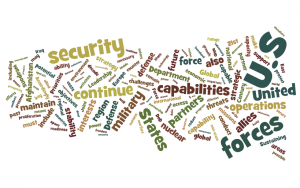In Memogate Cross-Examination, Ijaz Claims to Have Transcript of Zardari, Kayani Phone Conversation
Following up on his original video deposition from late last month, Mansoor Ijaz, once again by video link from London, was subjected to cross-examination yesterday and today by the judicial commission investigating the Memogate scandal. Ijaz reiterated his primary claim he has made from the start, that his actions were prompted by a strong belief that a military coup was imminent on the heels of the US action that killed Osama bin Laden in May, 2011.
Although he did not list the countries, Ijaz claimed to have been briefed by intelligence agents from four different countries. He submitted multiple documents as his proof. The Express Tribune described the documents as including a transcript of a phone call between Pakistan’s President and Army Chief:
After Haqqani approached him first, Ijaz said, he used his contacts with intelligence agencies of various countries to obtain documents, including travel records of Director-General Inter-Services Intelligence (ISI) chief Lt General Ahmad Shuja Pasha, minute-by-minute Pakistan Air traffic Control flight monitoring of US helicopters which infiltrated Pakistani airspace for the May 2 raid, and a transcript of a call between President Asif Ali Zardari and Army Chief General Ashfaq Parvez Kayani.
Interestingly, Dawn’s coverage of the cross-examination doesn’t specifically mention Zardari and Kayani by name as being in the transcripts, although it comes close:
During the cross-examination before the judicial commission investigating the case, the Pakistani-American businessman said he had been briefed by at least four intelligence networks of different countries after the killing of Al Qaeda chief Osama bin Laden in Abbottabad on May 2, last year.
He said he had obtained the information about actions and reactions of Army Chief Gen Ashfaq Parvez Kayani, President Asif Ali Zardari and the military secretary to the president after the incident, details of foreign visits of the Director General of Inter-Services Intelligence (ISI) and transcripts of conversation between air traffic control staff and the pilots of the US helicopters which raided Osama’s compound.
/snip/
He also claimed to have the transcripts of conversations between the President’s House and the Army House on the operation.
How is it that an American citizen of Pakistani descent would have access to intelligence agencies of so many countries? And, especially, how could Ijaz come into possession of a transcript of a call between Zardari and Kayani? Read more →



